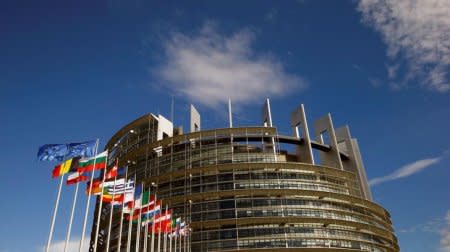EU court strikes a blow for more transparency in EU legislation process

Thomson Reuters
By Foo Yun Chee
LUXEMBOURG (Reuters) - Europe's second-highest court sided with proponents of more transparency in the EU lawmaking process on Thursday, saying that European Parliament should provide key documents in talks between legislators and EU countries on demand.
"The European Parliament must in principle grant access, on specific request, to documents relating to ongoing trilogues. The work of the trilogues constitutes a decisive stage in the legislative process," the General Court said.
Trilogues are informal meetings between the Parliament, the European Commission which is the EU executive, and the European Council which is made up of the leaders of the 28 EU countries.
Such closed-door negotiations play a key role on critical and sensitive issues. Hundreds of trilogues take place every year and are used in 70 to 80 percent of the legislature process. Supporters say it speeds up the process for complex laws.
Critics, however, say this type of lawmaking, shrouded in secrecy, limits democratic oversight as there is no transparency and it ultimately erodes trust in EU institutions and fuels euroskepticism.
Judges said more openness would boost EU bodies in the eyes of 500 million Europeans.
"It is in fact rather a lack of information and debate which is capable of giving rise to doubts in the minds of citizens, not only as regards the lawfulness of an isolated act, but also as regards the legitimacy of the decision-making process as a whole," they said.
The General Court's ruling came after Emilio De Capitani, the former secretary of the European Parliament civil liberties committee and executive director of the Fundamental Rights European Experts Group, sued the lawmaking assembly in 2015 over access to trilogue documents concerning freedom, security and personal data protection.
The papers typically lay out the Commission's legislative proposal, the Parliament's position and its amendments, the Council's views and the provisional compromise or the Council's preliminary position based on lawmakers' proposed changes.
Parliament granted him partial access, saying that there was no overriding public interest which outweighed the public interest in favor of disclosure.
De Capitani however continued his lawsuit because of the possibility of such incidents happening again - resulting in the ruling on Thursday.
Parliament can appeal the judgment to the Court of Justice of the EU on points of law.
(Reporting by Foo Yun Chee; Editing by Alison Williams; Editing by Alison Williams)
See Also:

 Yahoo News
Yahoo News 
